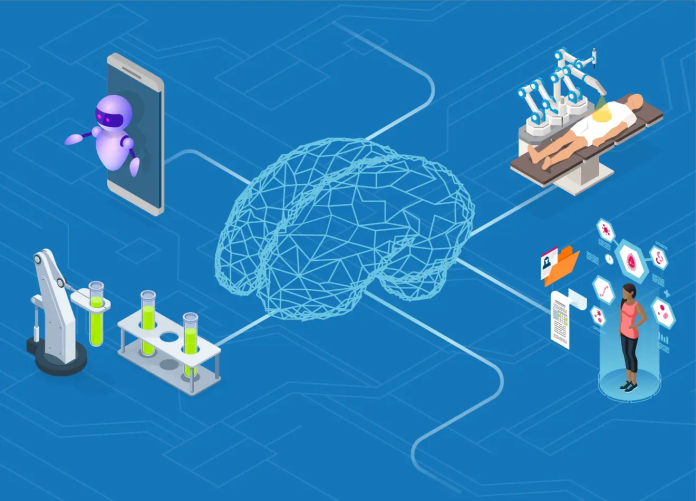Artificial intelligence (AI) is rapidly transforming the way we approach health, offering tools that can personalize care, predict risks, and promote daily wellness in ways previously unimaginable. But as this transformation accelerates, it brings with it the pressing challenge of how to build and maintain trust. The tools guiding our health choices now influence behavior well beyond the clinic, touching everything from sleep to diet to medication routines. Joe Kiani, founder of Masimo and Willow Laboratories, has long understood that technology’s power is only as strong as the ethical foundation beneath it. With Nutu™, he demonstrates how transparency, safety, and patient-first design can guide innovation that truly earns user trust.
As AI continues to shape the future of healthcare, trust is no longer just a feature. It is the framework. Patients, clinicians, and developers alike must now align shared standards for transparency, fairness, and accountability. Without that alignment, even the most advanced innovations risk falling short of their true potential.
The Stakes Are Higher Than Ever
AI in healthcare offers powerful potential, from predicting disease before symptoms appear to guiding daily behavior change through real-time feedback. But these benefits also come with risks like algorithmic bias, data misuse, unclear accountability, and decision-making without human oversight.
When a health recommendation goes wrong or seems opaque, the consequences are deeply personal. Trust erodes quickly if users feel they do not understand how an AI system works or fear that their privacy could be compromised.
That is especially true for preventive tools, which operate between clinical visits and interact frequently with personal behavior patterns. These platforms must balance helpful coaching and overreach, supporting users without becoming intrusive.
Transparency Begins with Design
Ethical innovation starts at the design level. AI-driven platforms must be built with clarity in mind. It means clearly explaining how recommendations are generated, what data is collected, and how that data is protected. Users should be able to see not only what the system advises but also why.
For example, if the platforms suggest that a user wind down earlier in the evening or adjust their post-meal activity, it is critical that those suggestions are linked to clear, understandable data trends. When users understand the “why,” they are more likely to engage with and trust the system.
Transparent design is not a barrier. It is a competitive advantage. Platforms that earn user trust see higher retention, stronger engagement, and better outcomes.
Guarding Against Bias
Bias in healthcare algorithms can perpetuate disparities rather than close them. If an AI model is trained on data that lacks diversity, its recommendations may be less accurate or even harmful to certain populations. It is an ethical failure and one that developers must work actively to prevent.
It requires intentional training of models on diverse, representative datasets, regular auditing of outcomes, and collaboration with experts in health equity. Trust cannot exist if certain groups consistently receive lower-quality guidance from AI tools.
That is particularly important for preventive care, where early guidance shapes long-term behavior. Systems are only as fair as the data and logic that power them.
Human Oversight Is Not Optional
No matter how sophisticated AI becomes, it should not operate without human input. Platforms that guide users through complex health decisions must include oversight, both in product development and clinical integration.
That means creating feedback loops where users can challenge or override recommendations and where clinicians can interpret and contextualize AI-generated insights. It also means establishing clear boundaries around what the tool can and cannot do on its own.
This commitment to ethical innovation is reflected in the leadership behind these platforms. Joe Kiani, Masimo founder, shares, “Willow’s number one priority is to revolutionize diabetes care.” But that revolution must be guided by empathy and ethics. For Nutu and similar platforms, the goal is not to replace clinicians but to extend their influence into everyday life in responsible ways.
Protecting Privacy in a Connected World
Preventive tools rely on continuous data, such as sleep patterns, stress levels, glucose trends, and more. This data is sensitive, and its protection is foundational to trust. Encryption, anonymization, and strict access protocols must be standard, not optional.
More than compliance with regulation, trust in privacy is about perception. Users must feel confident that their health information is safe, not just because a company says so, but because they can see the guardrails for themselves.
It includes giving users control over what they share, when they share it, and with whom. Consent must be informed, reversible, and respected at every level.
Building Ethical Infrastructure for the Future
Ethics in AI healthcare is not a checklist; they are a culture. They must be embedded in hiring, product development, research, and customer support. Every part of an organization must understand that innovation without trust is unsustainable.
For companies like Willow Laboratories, this culture is essential to scaling responsibly. As digital healthcare continues to grow and reach more people, the systems that support it must remain transparent, inclusive, and aligned with the principles of safety and equity.
Earning the Right to Lead
As AI’s influence expands, so does the responsibility of those who build it. Companies that want to lead in this space must earn that right, not just through smart algorithms but through ethical choices.
That means listening to users, responding to feedback, and being willing to slow down when safety demands it. It means putting people first, even when technology wants to move faster.
From Trust to Transformation
Innovation without trust is noise. But when ethical design meets intelligent technology, AI can become one of the most powerful tools in healthcare. It can guide people toward better choices, reduce disparities, and support clinicians in ways that scale across populations. To fulfill this promise, developers must continue prioritizing inclusion, clarity, and accountability at every step of the product journey.
By focusing not only on what AI can do but also on how and why it does it, platforms like Nutu are setting a standard for responsible digital health. In a world where more health decisions happen through screens and sensors, building and protecting trust is the most essential step toward meaningful change.
































